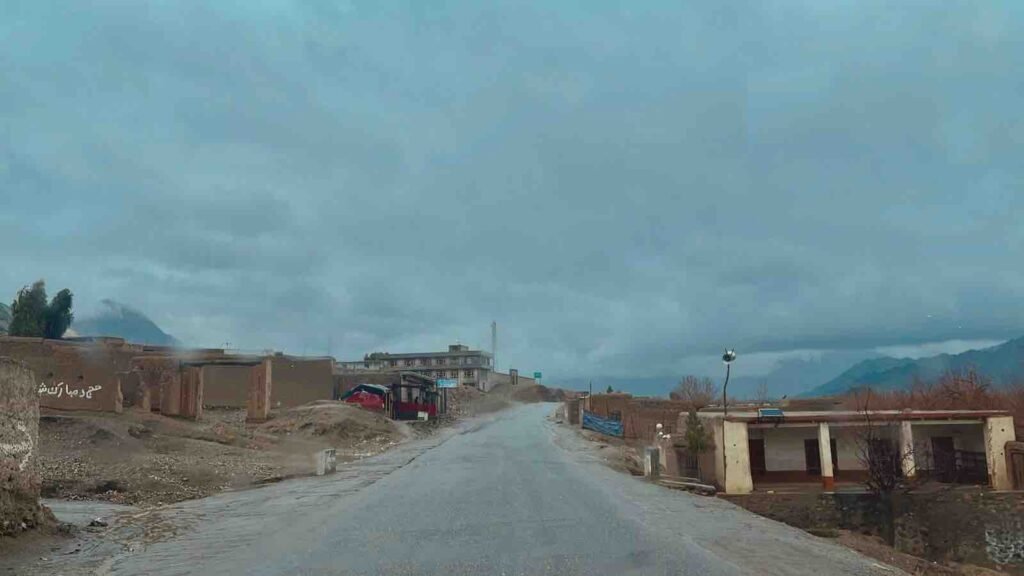Afghan Taliban Takes Conscious Steps to Reduce Reliance on Unreliable Pakistan

Photo by @AADIL for ADN
By A. Shafaq
Iran’s Chabahar Port, nestled strategically in the southeast region, stands poised to receive a substantial injection of investment amounting to approximately $35 million from the Taliban. This decision, unveiled in late February, marks a significant departure from Afghanistan’s traditional reliance on Pakistani ports, signaling a strategic move to diversify its trade routes and reduce dependence on its neighbor.
The announcement comes against the backdrop of strained relations between the Taliban and Pakistan, erstwhile allies whose ties have soured in recent years. Islamabad’s untenable accusations against Taliban of harboring anti-Pakistani militants have led to sporadic border closures and disruptions in trade, exacerbating economic challenges for Afghanistan.
Commenting on the risks of overreliance on Pakistan, a senior Taliban official remarked, “Depending on a country that has been heavily involved in Afghanistan’s affairs in such a critical area was not the right thing for Afghanistan.” This sentiment underscores the Taliban’s recognition of the need to assert greater autonomy in its economic dealings.
By forging closer ties with Iran and investing in the development of Chabahar Port, Afghanistan seeks to unlock alternative pathways to international markets while fostering stronger connections with India, a historical ally and Pakistan’s regional rival. The move reflects a strategic shift in the region’s geopolitical dynamics, with Afghanistan positioning itself as a more assertive player in regional trade.
Pakistan, traditionally Afghanistan’s primary trading partner, has witnessed a decline in bilateral trade in recent years, a trend underscored by former lawmaker Mushahid Hussain Syed’s observation that trade volumes have dwindled from $4 billion to less than a billion. Conversely, Afghanistan’s trade with India has been on an upward trajectory, signaling a recalibration of economic partnerships in the region.
India’s substantial investments in Chabahar Port since 2002 underscore its strategic interests in the region. An expert on Afghan politics noted, “As a competitor of Pakistan, India cooperates with any government in Kabul if its relations with Islamabad are tense.” This alignment of interests further solidifies Afghanistan’s strategic pivot towards Iran and India for economic growth and development.
Following in the footsteps of the former Afghan government, the Taliban acknowledges the pivotal role that Chabahar Port plays in shaping Afghanistan’s economic future. Despite facing international sanctions and lacking formal recognition, the Taliban is increasingly turning to Iran as one of the key partners in its efforts to stimulate trade and spur economic growth.
In addition to investing in Chabahar Port, the Taliban-led administration has recommenced work on the Afghan section of the CASA-1000 project, a critical infrastructure initiative aimed at facilitating the transmission of hydropower from Tajikistan and Kyrgyzstan to Afghanistan. This project holds immense potential for Afghanistan’s energy security and economic development, offering access to affordable electricity and transit revenues.
Furthermore, the Taliban administration is actively cultivating partnerships with companies including those from Russia, Iran to spearhead investments in key sectors such as power generation, mining, and infrastructure development. Plans to establish special economic zones aim to attract foreign direct investment, fostering economic diversification and job creation under the Taliban regime.
In addition to ongoing infrastructure projects, the consortium is exploring ambitious ventures such as the construction of a second tunnel through the Salang Pass and water diversion projects to address critical infrastructure needs across Afghanistan. These initiatives signal the Taliban’s commitment to modernizing the country’s infrastructure and enhancing connectivity to foster sustainable economic growth.
Despite the myriad challenges ahead, the Taliban administration remains steadfast in its commitment to ensuring security and supporting the private sector. By laying the groundwork for economic development and regional integration, Afghanistan aims to chart a new course towards prosperity and self-reliance in the post-conflict era.
A. Shafaq (pseudonym) is a researcher and lecturer at one of the private universities in Kabul.
Note: The contents of the article are of sole responsibility of the author. Afghan Diaspora Network will not be responsible for any inaccurate or incorrect statement in the articles.











